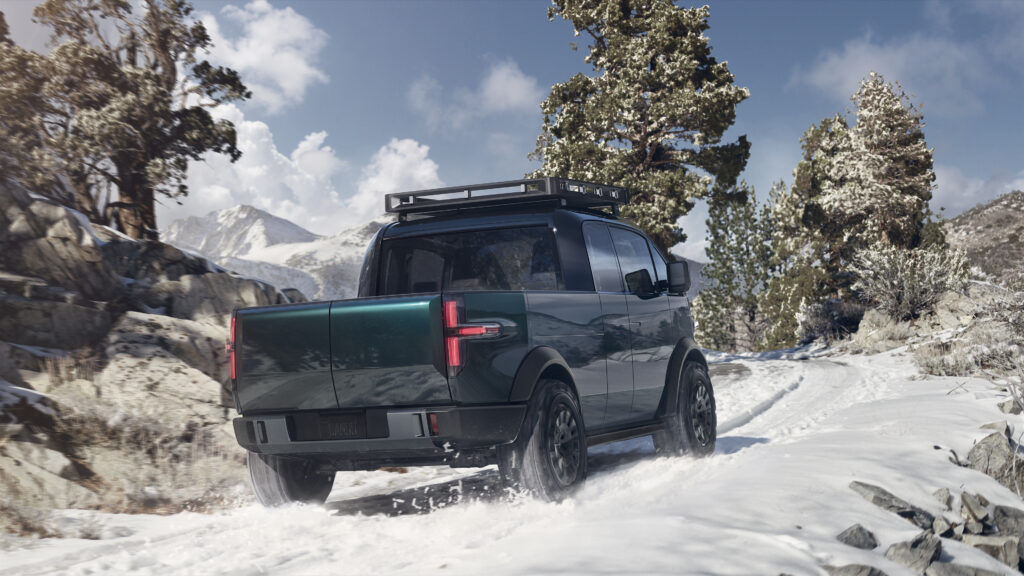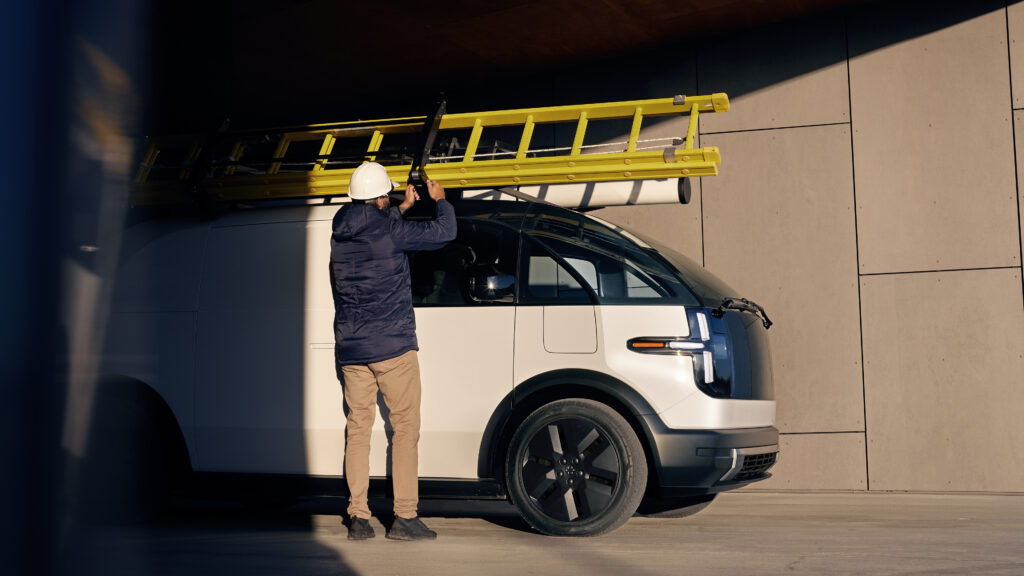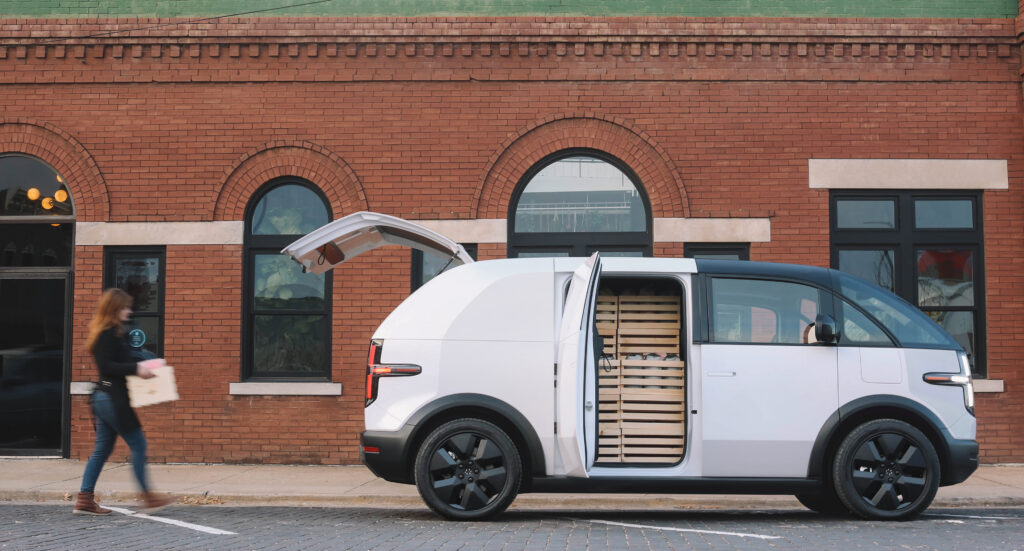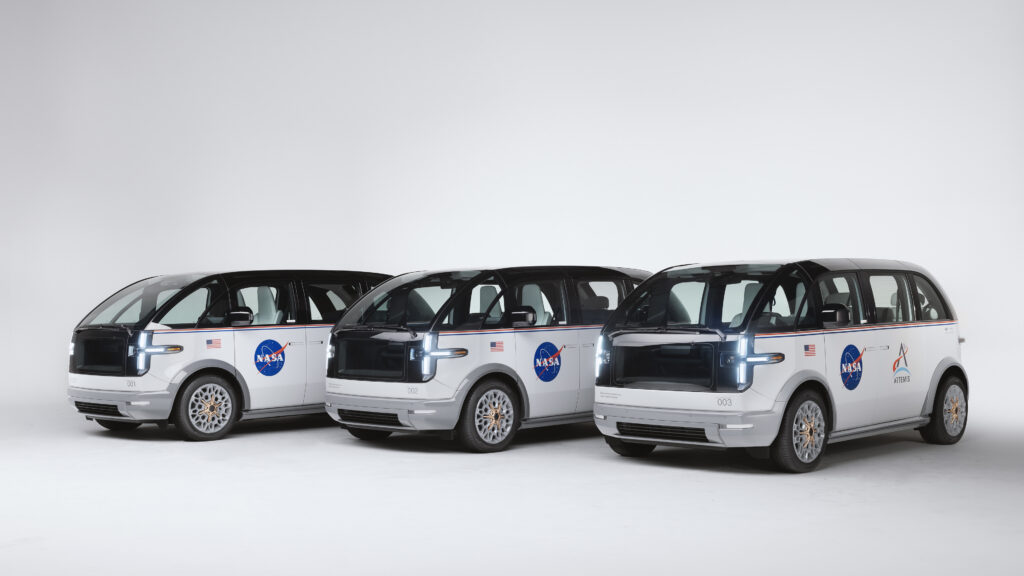Canoo Is Cool but Probably Doomed
The start-up wants to make stylish, small EV trucks, but too few people are buying them.

When General Motors announced its Hummer EV, the internet replied with horror and mockery.
Those who laughed saw it as a fundamental contradiction. If you want an environmentally friendly EV, why would you buy a massive, brick-shaped Hummer? And if you want a Hummer, wouldn’t you want a fittingly loud, powerful V8? The electric Hummer, therefore, appeals to few customers, and General Motors can neither build nor sell them at scale.
The horror, by contrast, came from the idea of American streets filling with these 10,000-pound, 87-inch wide bricks on wheels, which can go from still to 60 miles an hour in 3.5 seconds.

Conversations like these are where Canoo, founded in 2017, tried to strike out as different. Canoo pushed its truck’s cabin right to the front, its wheels right to the corners, and squeezed as much out of its dimensions as possible. And so — though it looks like a flat-faced pill and shares the length of a Mini Cooper — it includes a standard six-feet truck bed, which can be expandable to eight feet long.
It’s small, nibble, well-packaged, and those on Tech Twitter were besotted, imagining future cities filled with Canoo delivery vans, shuttling around last-mile deliveries for Amazon, Walmart, and the Postal Service.

The truck, and this future, is a wonderful fiction. Yet Canoo can’t make them, and too few people are interested in buying them.
On December 18th, Canoo announced it would let go of 82 employees and be “idling its factories in Oklahoma” as it tries to secure more investment capital. A few days later, according to TechCrunch, they told their remaining employees that they would be locked out of Canoo’s systems and go on an “unpaid mandatory break” — which is one way to get around paying severance.

None of this is surprising. Canoo struggled to build out its business and sales channels when electric pickups and utility vehicles were all the rage, but a few years have passed, and the market is colder now. Namely, companies have tried electric trucks, and they’ve proven more disappointing than revolutionary — as I wrote about almost two years ago in these pages. The charging infrastructure remains patchy and unreliable; the advertised range of EVs collapses when you start towing anything or shifting cargo, and they depreciate faster than anything else on the market. Oh yes, and the range fizzles up in the cold. Also, if your Tesla breaks down, it can be months before your replacement parts arrive, and that’s a large, established brand. Have you seen a local Canoo service center?
These are all difficulties when selling to individual customers, but Canoo was aiming for corporate customers, like NASA, Walmart, and other large firms, and large companies can’t afford downtime.

Besides the EV truck dilemma, Canoo faces a small vehicle cost problem. Large vehicles cost less to build per square foot than smaller ones, and you need fewer of them to transport the same goods.
Again, these are cool little trucks, and I would love to see future cities filled with them doing last-mile deliveries. Yet this is a tricky business, and this press release is hardly a surprise.

